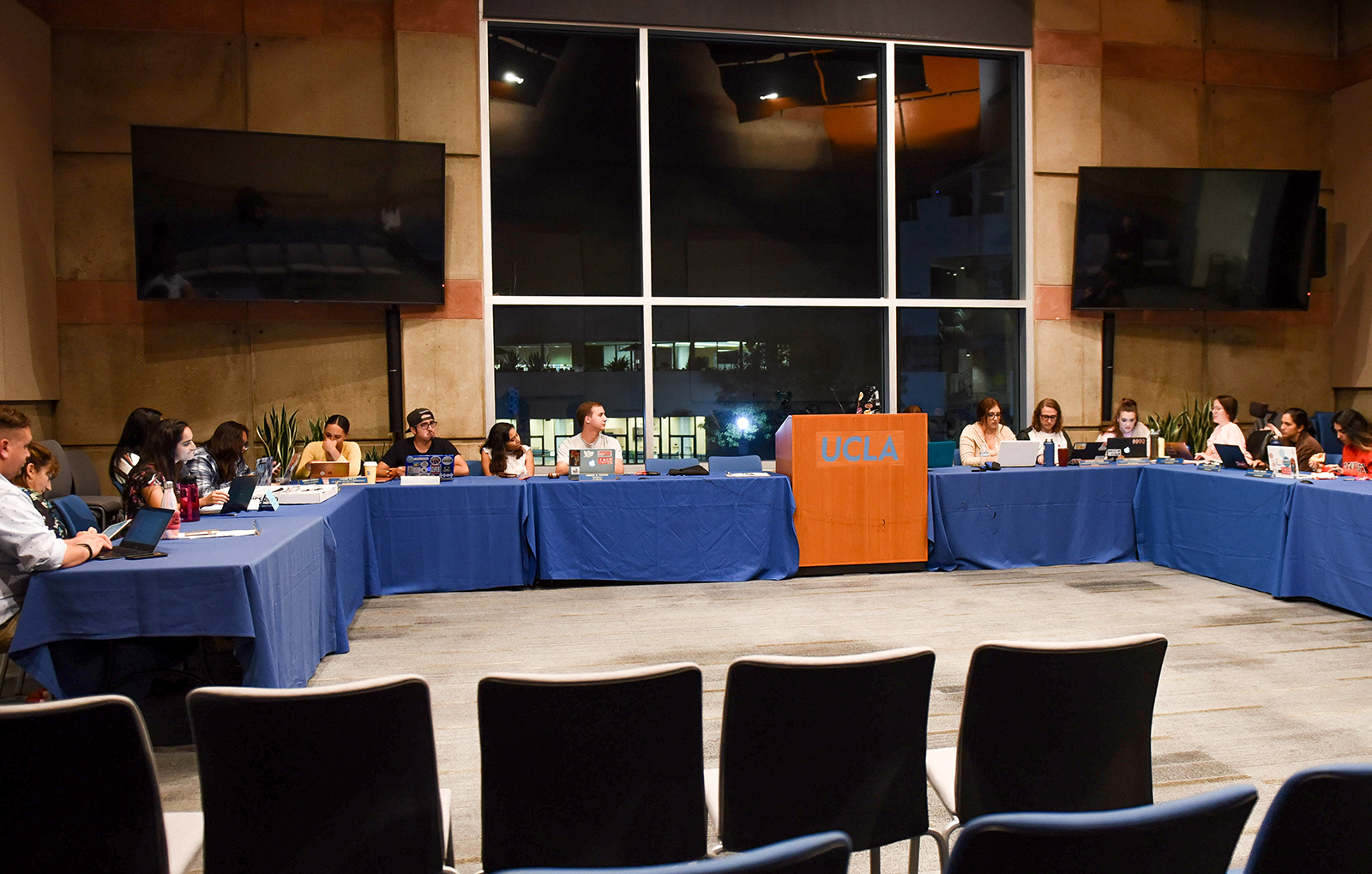USAC decision restricts direct access of student organizations to surplus funds

The Undergraduate Students Association Council decided to restrict applications for its surplus funds to USAC entities, committees and organizations in an effort to streamline the money distribution. (Daily Bruin file photo)

By Marilyn Chavez-Martinez
Dec. 2, 2019 1:08 a.m.
Student organizations will not be able to directly apply for undergraduate student government surplus funds, following a council decision in November.
The Undergraduate Students Association Council modified last year’s allocation process for its surplus funds at its Nov. 19 meeting so that only USAC offices, entities or committees will be able to make proposals for surplus funds. The USAC surplus fund is made up of fees collected from students, left unused by the council from the previous year.
Last year, the council divided the surplus in three areas: its projects, its contingency funds – funds specifically for student organizations’ programming – and student organizations, which could submit applications for consideration directly to the council. About 100 organizations applied last year, said USAC President Robert Watson.
This year, the council had a $279,000 surplus budget. The first $150,000 of the surplus was redistributed into Contingency Programming Fund and the Associated Students UCLA Board of Directors fund on Nov. 26. The council now plans to listen to proposals week 10 of fall quarter and weeks one and two of winter quarter before beginning the allocation process.
At the Nov. 19 meeting, the council also suggested allocating some money to USAC offices, which would in turn add money to pools that student organizations could apply for.
“The money … is restricted to council (organizations), entities and committees, but a lot of that money, or from what I’m understanding, is at least some of that money is going to be going to already existing or new funds within offices that are distributed to student organizations,” Watson said to the Daily Bruin.
When USAC attempted student organization applications for the surplus last year, Watson said applications were ultimately not given proper consideration because of the high volume of applications.
Watson said he thinks the new process will ensure that applications will be given more thought.
During the council discussion, several USAC members advocated for a direct student organization fund application instead.
Watson said he thinks the perception that allocating money to the council is in conflict with allocating money to students is inaccurate, given that the council is meant to serve students. He also cited the first $150,000 being allocated to the Contingency Programming Fund as a way that surplus has traditionally gone to students.
Academic Affairs Commissioner Naomi Riley said to The Bruin that the council might face some difficulty in letting students know about the additional funds since there aren’t direct applications. However, she ultimately said she thinks narrowing the application process will help the council allocate funds more efficiently.
“(The) council is not a funding body. … We don’t have the mechanisms to actually determine who’s going to get what and because of that, (the council) made me realize that it’s a lot better for people to just ask for money for different projects or for their own funds, and then for student (organizations) to apply through there,” Riley said.
During the Nov. 19 council discussion, administrative representative Debra Geller also suggested reaching out to the USAC Election Board to help it use some of the surplus funds, given its obligation to hold two elections this year as opposed to just the standard spring election. The election board currently has one member and no chair, following the resignations of election board chair Kyana Shajari and two other members during the Nov. 5 council meeting.
Watson said although the election board did receive additional funding from the council to account for the two elections, he plans on helping the board apply for more funds from the surplus.
Riley said she hopes council members keep in mind the needs of all students when asking for surplus money from the council, for example, by means of data collection or surveys. She cited her office’s work measuring student interest in its quarterly textbook scholarship.
“I would hope that the other council members do the same when they’re asking for these funds, because, like I said, if it’s not going back to students directly, I believe it should go back to student (organizations),” Riley said.


